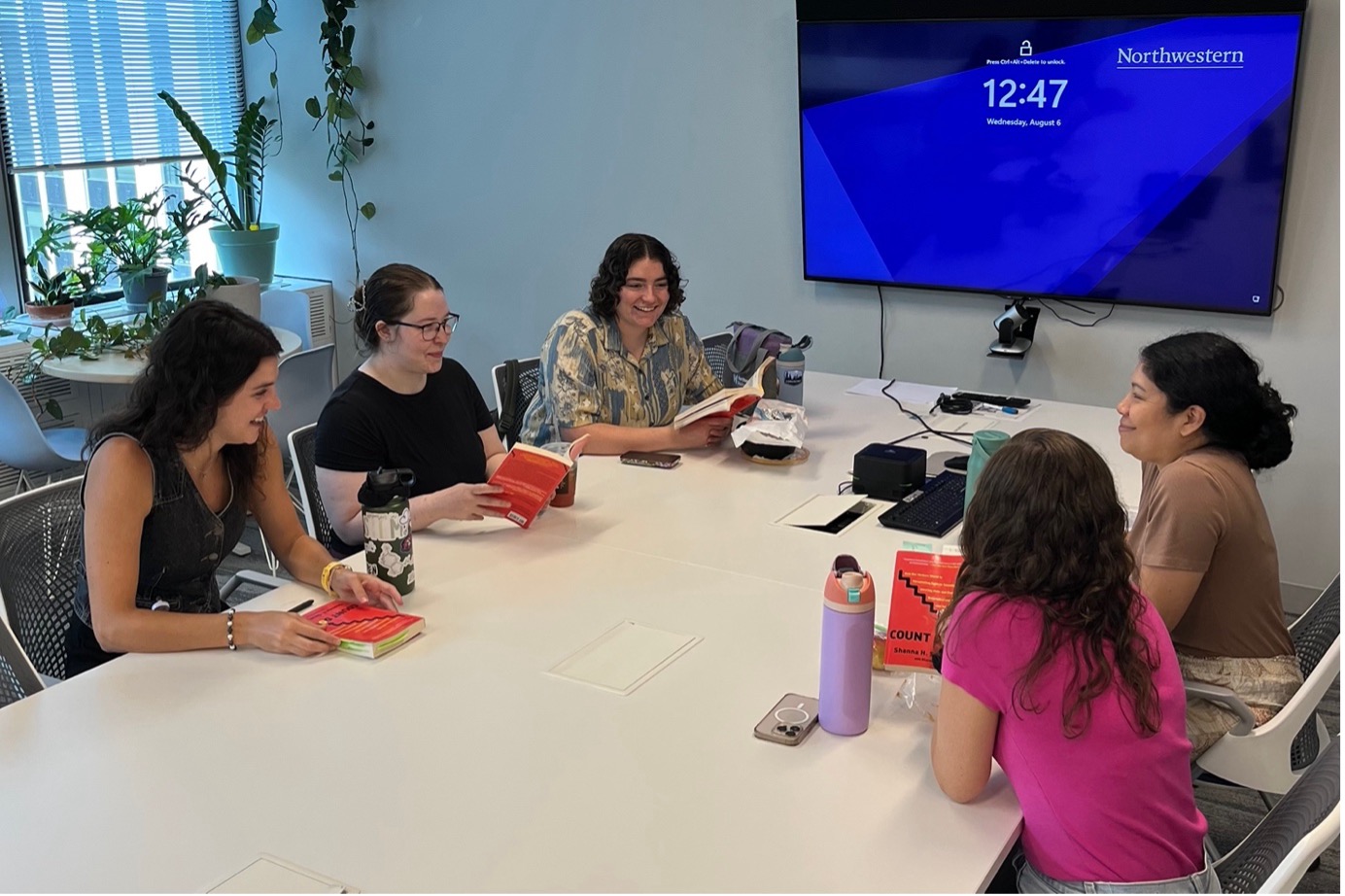Book Club Reflections on Countdown with Dr. Shanna Swan
Each summer the CRS hosts a book club aimed at expanding our literary perspectives in our field. This year’s selection, Countdown: How Our Modern World Is Threatening Sperm Counts, Altering Male and Female Reproductive Development, and Imperiling the Future of the Human Race by Dr. Shanna Swan, resulted in some engaging and thought provoking conversations about human fertility, declining sperm counts, and the prospective future of fertility. 
Additionally, our community also had the exciting was the opportunity to virtually meet with Dr. Swan herself to discuss the book and her decades of pioneering research. Our community members were lead by discussion moderators Andi Beaudouin (Torchen Lab) and Caroline Kratka (Duncan Lab) in a thoughtful dialogue about the urgent questions raised from Dr. Swan’s work.
During the discussion, Dr. Swan highlighted several of the most surprising and meaningful discoveries in her career. In writing Countdown, Dr. Swan was able to gain surprising insights from comparing studies from her research team and others that showed drastic declines in sperm counts over the last several decades.
One of Dr. Swan’s first surprises came from reanalyzing a 1992 Danish study showing that sperm counts had declined by 50% over 50 years. She tested potential confounders such as age, obesity, stress, and lab methods, but none could explain the decline, confirming the finding was real and alarming. Another key discovery emerged from comparing semen samples across U.S. cities. In this carefully controlled study, men in agricultural Missouri had only half as many motile sperm as men in urban Minneapolis, pointing to the impact of local environmental exposures, particularly pesticides, which were later confirmed through urine analyses.
Dr. Swan also described how her work led to investigating phthalates, chemicals found in countless everyday products. Animal studies showed that exposure during pregnancy could alter the sexual development of male offspring, a phenomenon termed “phthalate syndrome.” Thanks to stored urine samples from earlier studies, Dr. Swan and her team were able to investigate similar associations in humans, revealing that prenatal exposure to these chemicals can indeed affect male reproductive development.
 Beyond the science, what stood out most in our conversation was Dr. Swan’s openness about her journey as a researcher. She shared how she began as a skeptic, determined to disprove earlier studies, only to be convinced by the overwhelming consistency of the evidence. She also reflected on the responsibility scientists have in communicating findings that affect not only academic discourse but also public health, daily living, and the future of generations to come.
Beyond the science, what stood out most in our conversation was Dr. Swan’s openness about her journey as a researcher. She shared how she began as a skeptic, determined to disprove earlier studies, only to be convinced by the overwhelming consistency of the evidence. She also reflected on the responsibility scientists have in communicating findings that affect not only academic discourse but also public health, daily living, and the future of generations to come.
The dialogue with Dr. Swan left participants not only with a deeper understanding of the data but also with a sense of urgency and agency. Her insights reminded us that while environmental threats to fertility are real, the scientific community, and each of us, can play a role in raising awareness, informing safer policies, and making everyday choices that reduce exposure.
Our session with Dr. Swan was a unique opportunity to connect directly with one of the leading voices in environmental and reproductive epidemiology. The combination of scientific rigor, personal honesty, and forward-looking vision made this discussion both eye-opening and inspiring. It was a clear reminder that the story of Countdown is not only about declining numbers, but it is also about the choices we face today to protect fertility, health, and the future of humanity.